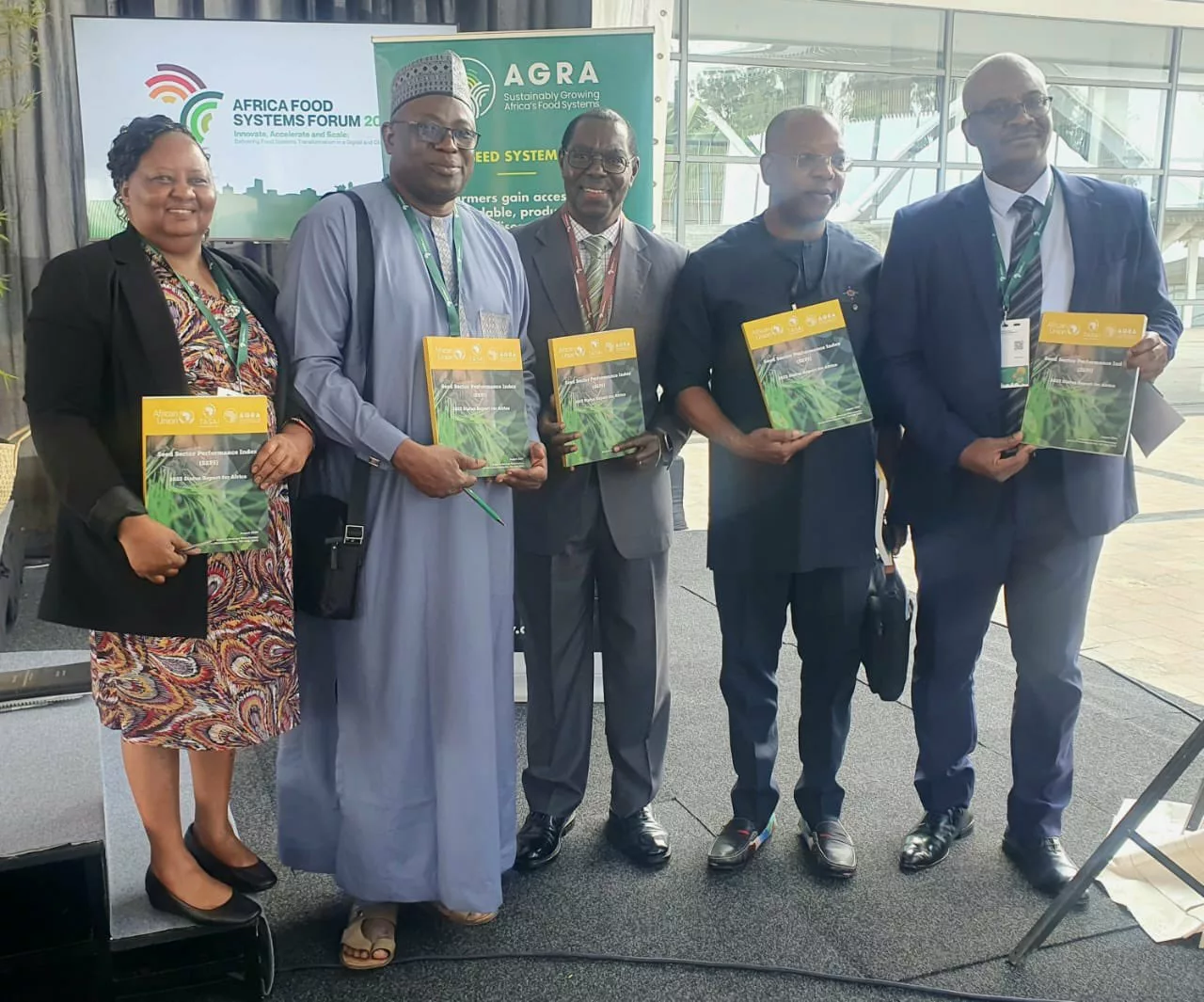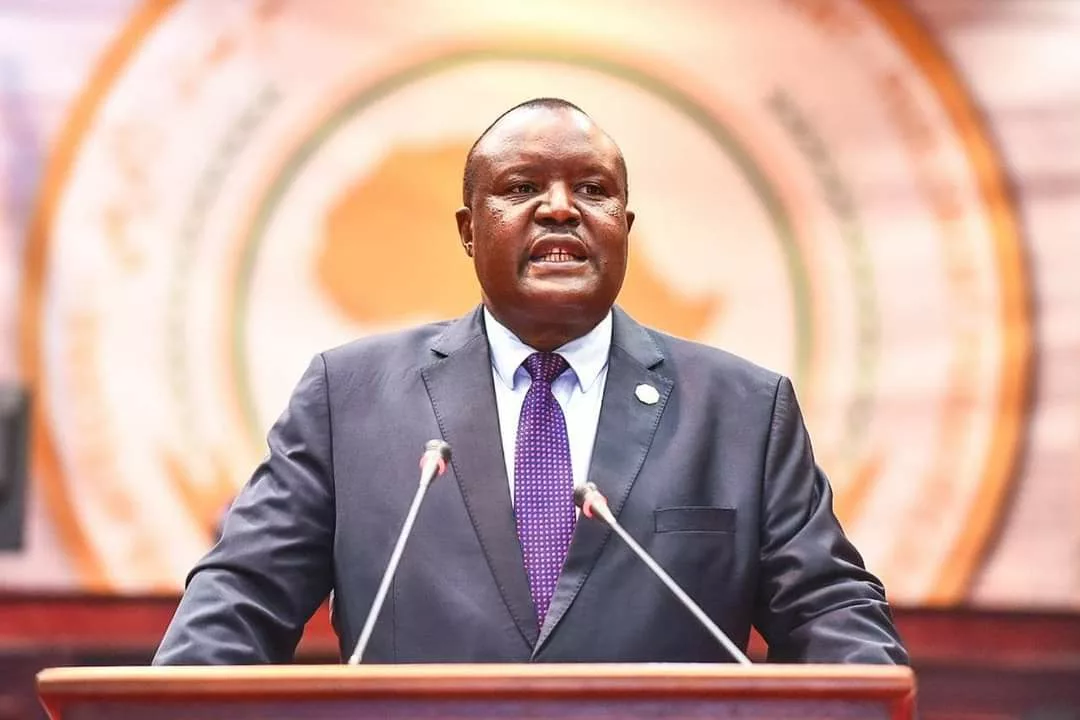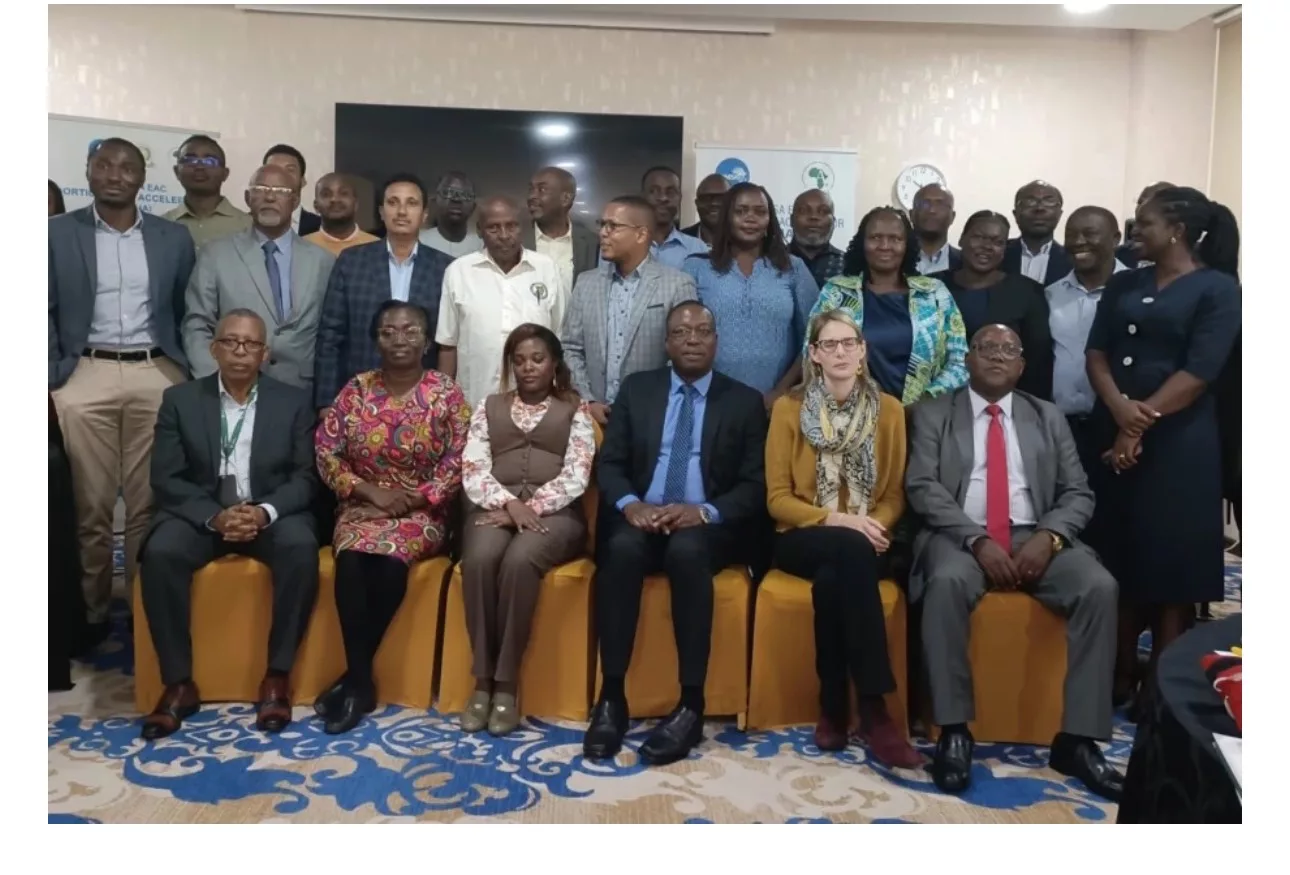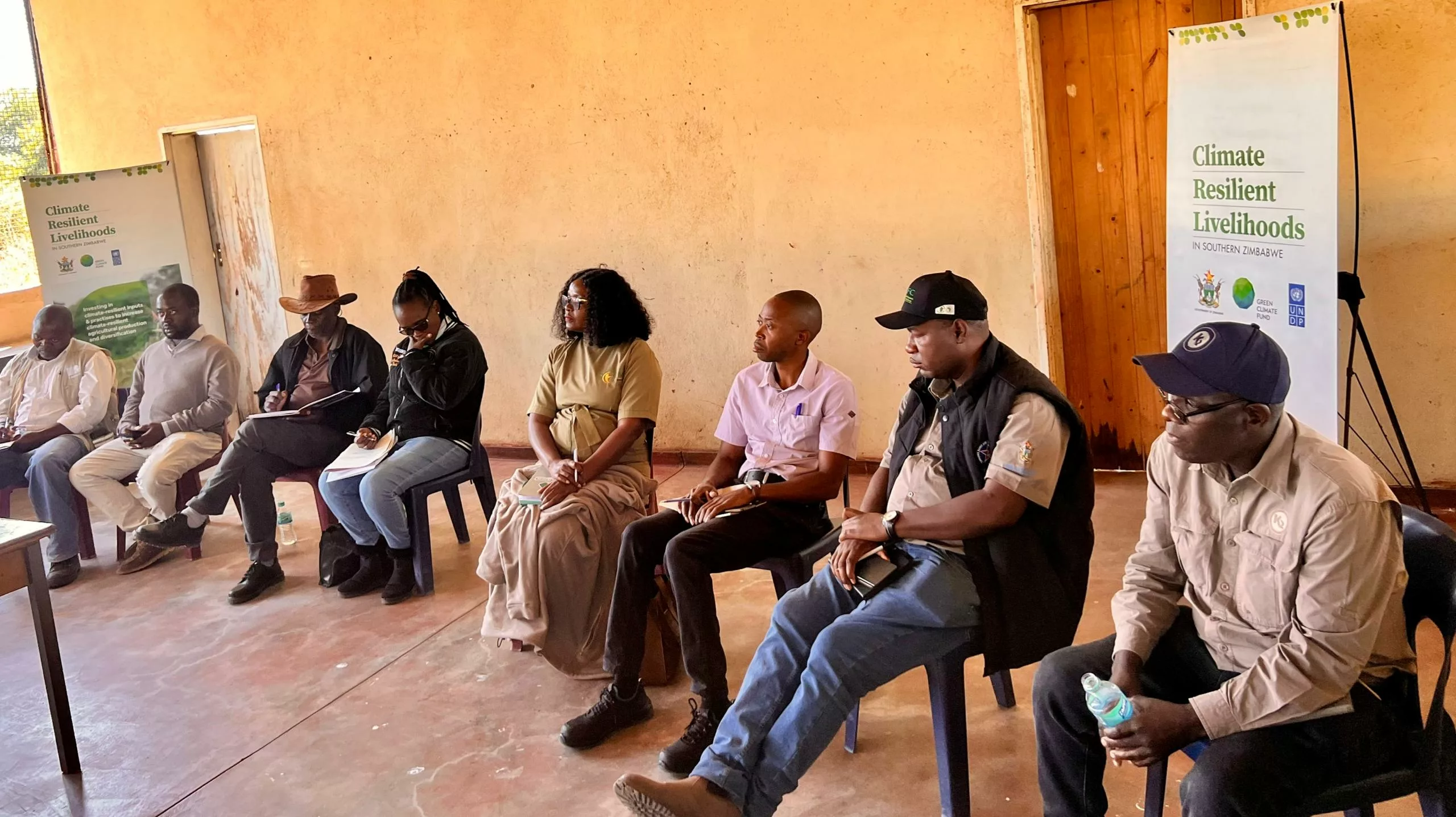|
Getting your Trinity Audio player ready...
|
The 2023 Seed Sector Performance Index (SSPI) Status Report for Africa was disseminated at the African Food Systems Forum’s 2024 Summit on 2 September in Kigali, Rwanda. The SSPI is a new, single score-based measurement tool that provides “a bird’s eye view” of the health of national seed systems across the continent. The SSPI was developed by TASAI Inc., in partnership with AGRA and the African Union Commission. The SSPI is a key input into the 4th Biennial Review Report of the African Union Commission.
The well-attended launch was moderated by Enock Chikava, Director of Agricultural Delivery Systems at the Bill and Melinda Gates Foundation (BMGF), who praised the index as an important step towards providing a more precise measurement of the status of national seed sectors across the continent.
“A seed system is the journey that an improved seed variety takes from a breeder’s hands to the farmer’s field. This new report is valuable in pinpointing the critical stages along this journey that currently hinder access to improved seed varieties across Africa,” he said.
Prof. Ed Mabaya, a Research Professor in the Department of Global Development at Cornell University and one of the authors of the report, introduced the SSPI, saying: “Improved seed is the software that powers agricultural productivity. In these seeds, breeders can encode traits for climate resilience, enhanced nutrition, extended shelf life, as well as pest and disease resistance. The SSPI report will guide decisions by donors, policymakers, and private sector investors to unlock these advantages for millions of smallholder farmers across Africa.”
The presentation highlighted the key findings of the 2023 SSPI Report. The overall SSPI score for the continent across all indicators and all countries is “fair” at 4.8 out of 10. This indicates that, although there are some bright spots and consistent high performers to highlight, in most countries the report’s findings stress the urgent need to increase investment in seed systems to bolster agricultural productivity and sustainability.
Importantly, in countries that consistently rank at the bottom of the list, concerted efforts are needed across the entire value chain to improve the variety release process, strengthen agricultural research capabilities, enhance government seed inspection and certification efforts, and create (or improve) initiatives to combat counterfeit seeds.
Perhaps not surprisingly, South Africa emerged on top of many indicators with its robust, well-structured seed sector, effective variety release protocols, extensive breeding programs, and a sophisticated national agricultural research system where both private and public sector breeders complement each other. While no other country approached the success of the South African seed sector, runners-ups included Egypt, Ethiopia, Kenya, Malawi, Nigeria, Rwanda, Tanzania, Uganda, Zambia, and Zimbabwe.
The presentation was followed by a panel discussion by a group of influential seed sector experts from across the continent, including Dr. Ishiak Khalid, Director of the National Agricultural Seed Council, Nigeria, Dr. Yacouba Diallo, Secretary General, of the African Seed Trade Association (AFSTA), Dr. Ian Baker, Senior Director of Strategy, Delivery, and Scaling, One CGIAR and Dr. George Bigirwa, the Director of the Centre of Excellence for Seed Systems in Africa (CESSA), AGRA.
In his remarks, Ishiak Khalid confirmed that the SSPI results accurately reflected the situation in his country, Nigeria. Yacouba Diallo from AFSTA commented on the indicator on seed trade associations, saying “Effective seed sector transformations require the representation of the private seed sector in the seed development agenda at national, regional, and global levels. National seed trade associations play a critical role in the development of the seed industry on the continent by addressing some key challenges faced by the African seed industry, including seed trade barriers due to outdated seed laws and regulations that adversely affect the ability or desire for private-sector investment in the seed industry, low capacity of local seed companies to deliver quality seeds, etc. Therefore there is a need for partners to join with AFSTA to support the establishment and strengthening of national seed trade associations to effectively contribute to the development of the seed industry in Africa.”
Representing key project partner AGRA, Dr. George Bigirwa lauded the report, saying: “SSPI fully complements outcomes of the national seed system assessments AGRA has completed and still doing, which delve into details using 166 indicators to identify gaps in seed systems. The recommendations have been packaged into national seed investment plans. AGRA plans to support another round of SSPI data gathering exercise, whose report will be part of the 5th AUC-CAADP Biennial Review. Very gratifying to see seed included among Biennial Review indicators.”
Available for download, the 230-page SSPI report starts by outlining the development of the research tool and explaining in detail the methodology used to collect and analyze the data. The main section of the report presents 3-page country briefs for each of the 47 countries, providing an overview of the seed sector, followed by the scores and related explanations for each of the 17 indicators. The final section of the report presents scores and findings by indicator, allowing for cross-country comparisons and regional trends. The report concludes with a summary of the main findings and key recommendations.
The target audience for the SSPI Report includes governments and other seed industry stakeholders looking for information on the status of national seed systems in Africa. Using a rigorous and detailed methodology, the SSPI provides data on 17 seed industry indicators from 47 AU member states. Building on the accomplishments and lessons of the 2023 report, the next round of SSPI data collection is already slated for 2025-26. The scores from the next report will inform the 5th CAADP Biennial Review.
To share the findings with a wider audience, TASAI is hosting a virtual dissemination meeting on 1 October 2024. Registration is open for this event.






